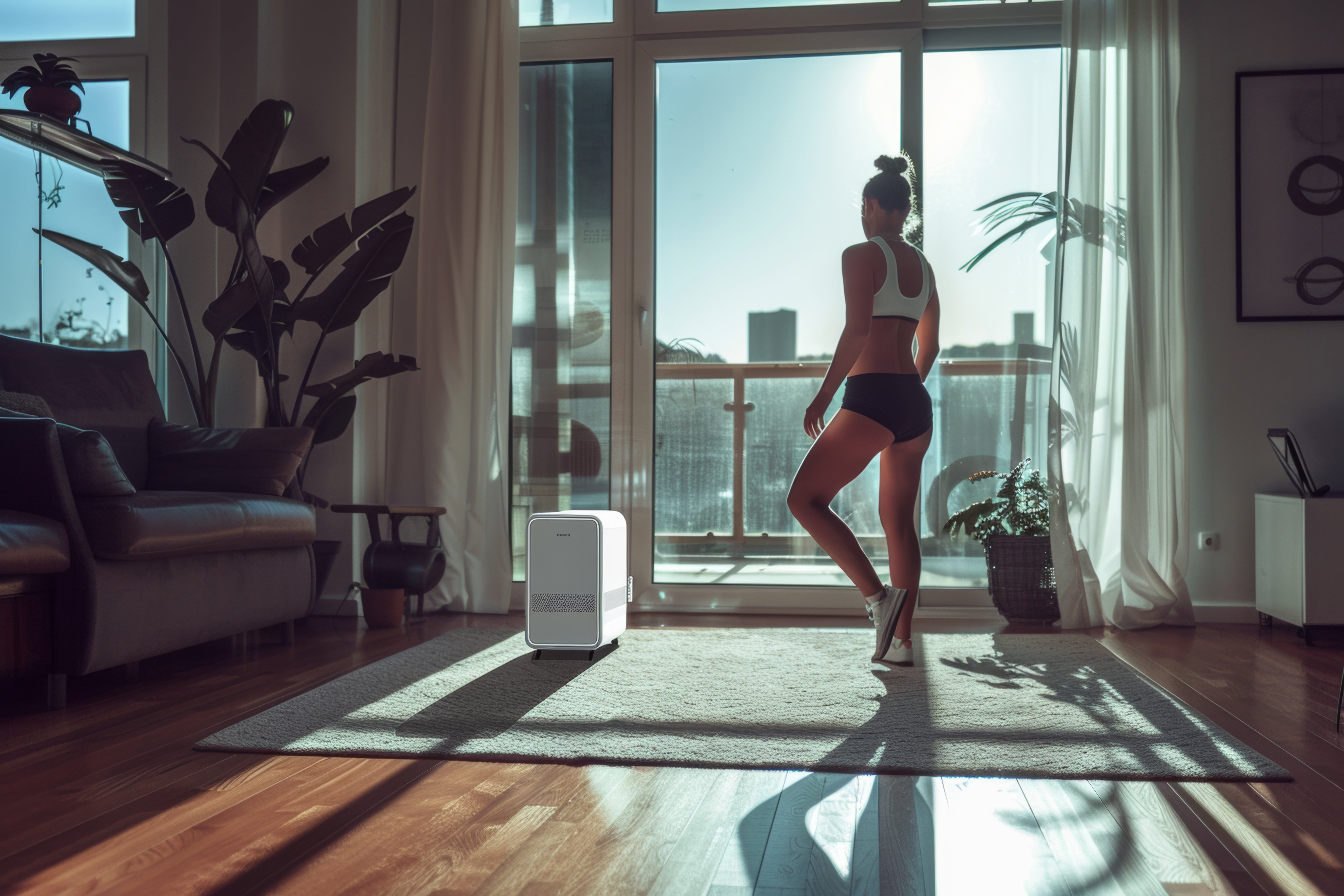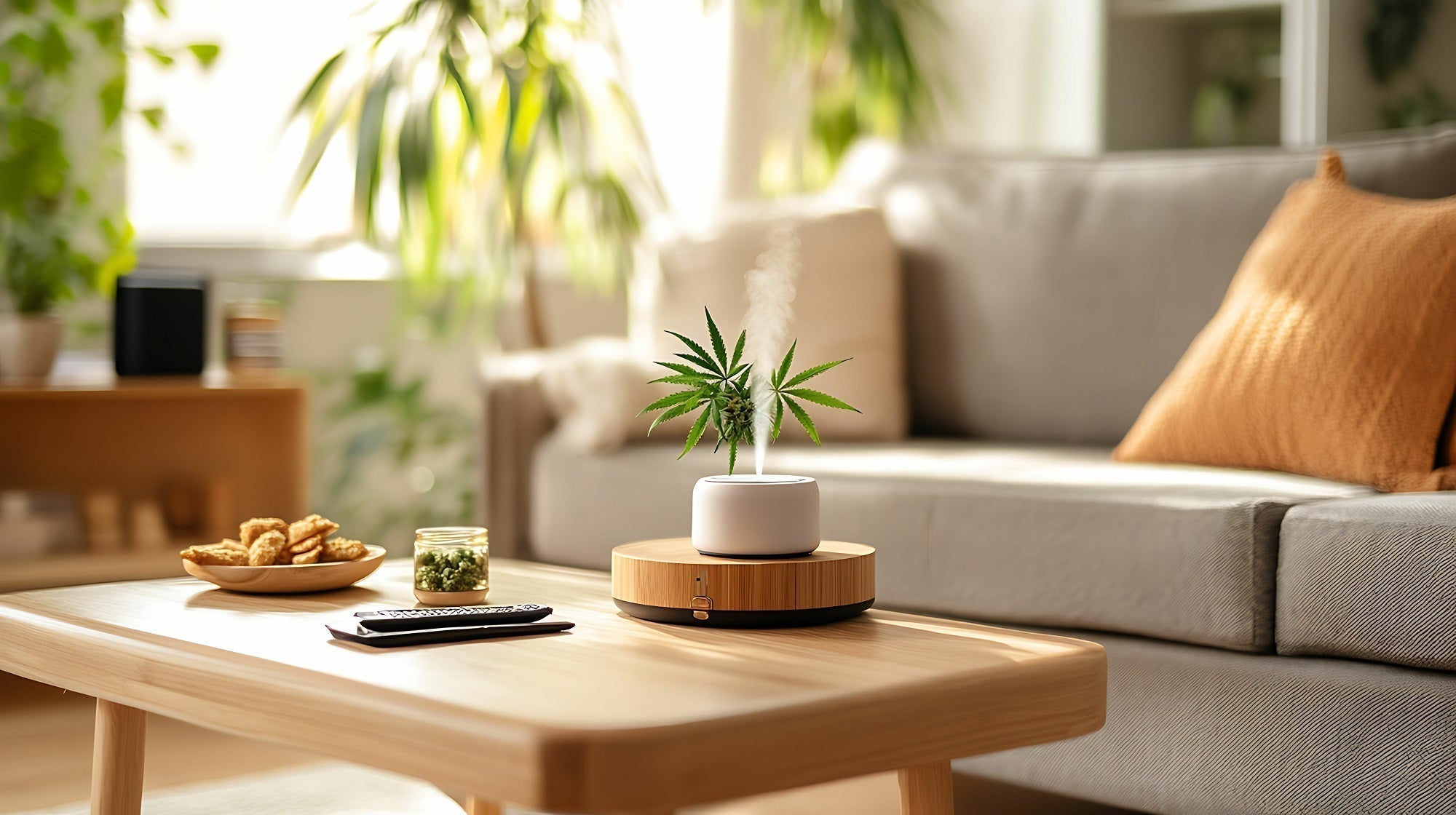How Norovirus Spreads Through the Air

When discussing airborne viruses, we often think of the common cold and flu. However, there’s another lesser-known, highly contagious virus that has been making headlines–Norovirus. With current cases higher than the 5-season average, Norovirus is fast circulating in England. Known for causing severe gastrointestinal distress, Norovirus is often associated with outbreaks in schools, cruise ships, and healthcare facilities.
While it is commonly transmitted from contaminated food and surfaces, emerging evidence suggests it can also spread through the air. The fact that Norovirus can spread through the air is not only alarming but also raises concerns about virus spread prevention. That’s where medical-grade air purifiers like MedicAir come into play. So, let’s understand how Norovirus spreads through the air and how MedicAir air cleaner can be your defence against such airborne viruses.
What is Norovirus?
Norovirus is a highly contagious virus that causes symptoms such as stomach cramps, nausea, vomiting, and diarrhoea. Both children and adults can contract this virus and it’s said to be more common in winter as is currently the case all over the UK. The virus is infamous for its ability to spread rapidly in crowded or enclosed spaces, making it a significant concern in shared environments.
How Does Norovirus Spread?
Traditionally, Norovirus was said to spread through the “faecal-oral route,” involving contaminated food, water or surfaces. However, studies have revealed that airborne transmission might be another critical pathway. Let’s understand how it happens.
When an infected person vomits, tiny particles of Norovirus become airborne and can linger in the air. These microscopic droplets can be inhaled, contaminate food and water or settle on surfaces. The risk of airborne transmission further increases in poorly ventilated areas or crowded spaces.
You’d be surprised to know that more than 30 million Norovirus particles can travel through the air during an episode of vomiting. If you are in close proximity to a vomiting person, you may unintentionally swallow or breathe these aerosolised particles and contract the infection.
Steps to Prevent the Spread of Norovirus
The possibility of airborne transmission makes controlling Norovirus outbreaks even more challenging. As it is with airborne viruses, virus spread prevention requires a multi-pronged approach. Here’s how you can reduce the risk:
1. Maintain high standards of hygiene
Frequently wash your hands with soap and water for at least 20 seconds. Also, keep in mind that alcohol-based hand sanitisers aren’t as effective against Norovirus so, don’t replace handwashing with sanitising.
2. Clean and disinfect surfaces
Use disinfectants that are effective against Norovirus to clean any frequently touched surfaces in your home. Bleach-based cleaners are said to be most effective in eliminating the virus from surfaces.
3. Isolate infected individuals
If someone is infected, they should stay home to avoid exposing others to the virus. Isolate for at least 48 hours after symptoms subside as the virus can still be contagious during this period.
4. Improve ventilation and air quality
Maintain good ventilation in your home to dilute the airborne virus particles. Additionally, use medical-grade air purification devices such as MedicAir air cleaner to improve your indoor air quality.
How MedicAir Can Help
Trusted by the NHS and WHO, MedicAir air purifiers are designed to capture and neutralise airborne viruses and bacteria. Our multi-stage filtration can remove up to 99.97% of airborne particles.
1. HEPA 13/14 activated carbon filter
MedicAir air purifiers are equipped with HEPA 13/14 activated carbon filters that capture microscopic particles as small as 0.3 microns, including pollen, dander, dust, smoke and mould spores.
2. Safe UV technology
What sets MedicAir apart from other air purifiers is our safe UV technology that utilises ultraviolet light to destroy viruses, bacteria, and other pathogens, ensuring sterilised and safe air without emitting ozone.
3. Smart monitoring
Our air purifiers also leverage ReAKT technology that continuously monitors air quality and activates the unit’s motors automatically to make sure the filtration process adapts to real-time needs. Plus, they’re compatible with Amazon Alexa and Google Assistant.
4. Silent operation
All our MedicAir air purifiers operate at less than 60 decibels (dB), making them ideal for use in homes, schools, workplaces, and hospitals without causing any disturbances. Our MedicAir Pro Mini can also operate at as low as 21 dB.
Final Thoughts
While the realisation that Norovirus can spread through the air is distressing, use it to amp up your defence against it. Traditional hygiene measures like handwashing and surface cleaning remain essential and must be complemented with tools like MedicAir air cleaner for effective virus spread prevention. Remember, prevention is better than cure.
Recent Blogs
Independent Global Testing Confirms MedicAir’s Filtration Excellence
Two of MedicAir’s flagship systems – the MedicAir Pro and MedicAir Pro Max – have been independently verified for their outstanding performance in real-world environments, following rigorous testing conducted in Kuwait by international air filtration expert Dr Iyad Al-Attar.
Heatwaves and Indoor Air Quality: How MedicAir Safeguards Health and Productivity
The recent heatwave has brought swelteringly high temperatures across the UK, significantly impacting indoor air quality (IAQ) and indoor environmental quality (IEQ).
Why Indoor Air Quality Matters for Cannabis Grow Rooms
With MedicAir, you get more than just air purification–you get peace of mind, knowing your plants are thriving in a controlled, contaminant-free environment.


